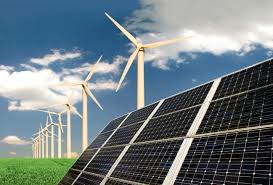Renewable Energies
The Mixed University Institute ENERGAIA (formerly CIRCE) has been committed to the development of renewable energies from the beginning. The current massive development driven by the necessary decarbonization of all economic sectors requires facing new challenges, more related to their efficient management and proper planning, along with fair and non-harmful development, especially for the territories where generation facilities are located.
At ENERGAIA, we work on the technological development of these renewables without researching new energy conversion processes or new materials for these energies. For example, the use of agricultural, forestry, or urban waste to generate energy, biofuels, or bioproducts is a sustainable resource produced locally and is a renewed focus of interest in many parts of the world. However, new questions arise regarding resource evaluation and utilization chains, improvement of thermochemical transformation processes, diversification of uses, optimization of new production facilities, or analysis of associated impacts (e.g., ash) that are subjects of new research lines.
Regarding low-temperature solar thermal energy, its potential to cogenerate electricity and heat in the same panel allows it to serve various energy needs (cold can be obtained via ab/sorption or panel refrigeration) for the domestic and industrial sectors. At high temperatures, the challenges focus on stable and profitable storage systems and their hybridization in generation for power plants. In the case of photovoltaics, its proliferation associated with higher yields and lower costs has created some inefficiencies in its efficient management, which must be resolved with a mix of new grid and consumer management methods, storage technologies, and appropriate regulation for the current situation.
For wind energy, the technological challenges focus on adequate predictive maintenance of existing parks, intensive management in preserving local biodiversity, circular economy after their exploitation ends, and research aimed at mitigating, as much as possible, their randomness and relative predictability.
Regarding renewable hydrogen, the preference is for it to be used in the production of certain basic products like ammonia, where it is a raw material, for its sustainable implementation in other sectors and applications according to its technological development.
The full integration of renewable energies in the electricity sector requires overcoming certain technological barriers. The association of distributed generation with storage systems and appropriate charging processes for electric vehicles allows for greater deployment of the former and lower costs for the latter. Storage systems with different capacities and response times are also essential, where hydroelectric plants play a fundamental role and also allow for better water resource management. PtoX technologies must also be harmoniously integrated to manage renewable energy surpluses. Network control and management must always ensure the stability and security of the power system, which can also benefit from ancillary services provided by distributed generation. Other lines of action include smart management in key sectors such as domestic, orderly proliferation of self-consumption and energy communities, and remuneration in line with the new situation in the electricity market.

